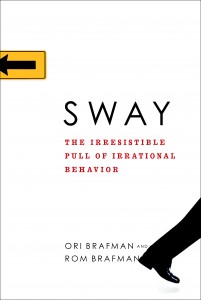When I start writing up a wacky business idea, one of the things I do is a quick search to see if someone has already done something similar. I don’t spend hours on it, but I’ll look for 5 or 10 minutes. In many ways it’s surprisingly rare to find someone is already doing what I’d thought of (I gues word spreads fast these days).
Presented, for your consideration, are three ideas that I had which turned out had already been thought up by other people when I went looking for them.
Electric Hookahs
Hookahs are pipes for smoking tobacco (a special variety called “shisha”) which involves filtering the smoke through water: remember the caterpillar in Alice in Wonderland? It’s really bad for you (smoking a hookah for 1 hour is about the equivalent of smoking a pack of cigarettes), but it’s also quite nice :-). When you set up a hookah, you typically use charchol to heat the tobacco. There’s a whole ritual to it, where you load a special bowl with the shisha, cover it with foil (with as small as possible holes placed it in), and put the burning coals on top of the foil. By inhaling on the pipe, you pull air in, past the tabocco being burned by the coal, and into the pipe (through the water and into your lungs).
The idea for this is to remove the charcoal by adding a fine element that rests above the shisha and burns it in the same way the coal does (but without getting ash everywhere and having to deal with hot coals). Some may argue that this isn’t proper, while others may say this is taking the hookah into the 20th century.
Either way, it’s been done. I even found a student at my university who has designed one.
An Academic Proofreading Marketplace
English is the language of academic discourse. In the past, French and Latin have been used, but now it’s English. If you want to have your ideas noticed, the top venues (conferences and journals) operate in English. Increasingly, strong universities will teach in English, even if it isn’t the native language of the country the school is located in.
This obviously puts non-native English speakers at a disadvantage. I’ve read a number of papers (published and unpublished) where the ideas were hidden by the awkward choices of spelling and grammar.
There are student “proof reading” services, which either help students who aren’t native English speakers or do the homework for lazy students everywhere, but this idea is to focus on academics, and provide a writing service catering to professors. They’d be connected with native speakers working in the same area as them (so they can accurately express the ideas). I did this (face-to-face) when I was abroad for computer science professors and found there was a lot of interest in it.
It’s already being done in the way I envisioned (at places like this) . I still think extensions on this idea are possible (like a site that places a premium on reliability and the pedigree of it’s proofreaders or a service that would send an in-person proof-reader to a foreign department on an on-going basis).
Zero Calorie Foods
It always seemed weird to me that there’s SO many choices for diet beverages, but no options for “diet food” (e.g. 0 calorie food). I get that food has to be made out of SOMETHING, and typically this something has calories. I’m not talking about so-called “negative calorie foods” (which are incorrectly believed to require more calories to digest than they possess) but instead something like diet soda, with ZERO calories. It may not be the most appetizing idea, but imagine taking some diet drink, then thickening it with an inorganic agent like melamine (the ingredient that Chinese company added to the baby milk that killed a bunch of infants). Except, you know, make sure whatever you use doesn’t kill people…
Even if the first version was basically zero-calorie Jello people would eat it. Over time more appetizing versions could be developed. There are people who would worry about the long term health consequences (just like some people worry about with diet drinks) and there are people who would refuse to eat something so unnatural (just as there are people who refuse to drink diet drinks), but I think there’d be a massive market that would be willing to give it a try.
A friend told me they saw “zero calorie jam” at the grocery store which intrigued me. I went looking, but didn’t find it (in any grocery stores or on-line). I’m assuming they saw “no sugar added” jam and misremembered. Unfortunately (for me), even if there isn’t zero-calorie jam on our shelves it already exists in Japan and some Kansas state researchers were working on it 7 years ago (so I’m sure if there’s any way to do it they’ve figured it out by now).
 “Sway” by the brothers Ori and Rom Brafman is about “the irresistible pull of irrational behavior”. It was passed along to me after a friend enjoyed it and thought I would as well (which I did). It’s a fast, easy read in the style of a
“Sway” by the brothers Ori and Rom Brafman is about “the irresistible pull of irrational behavior”. It was passed along to me after a friend enjoyed it and thought I would as well (which I did). It’s a fast, easy read in the style of a